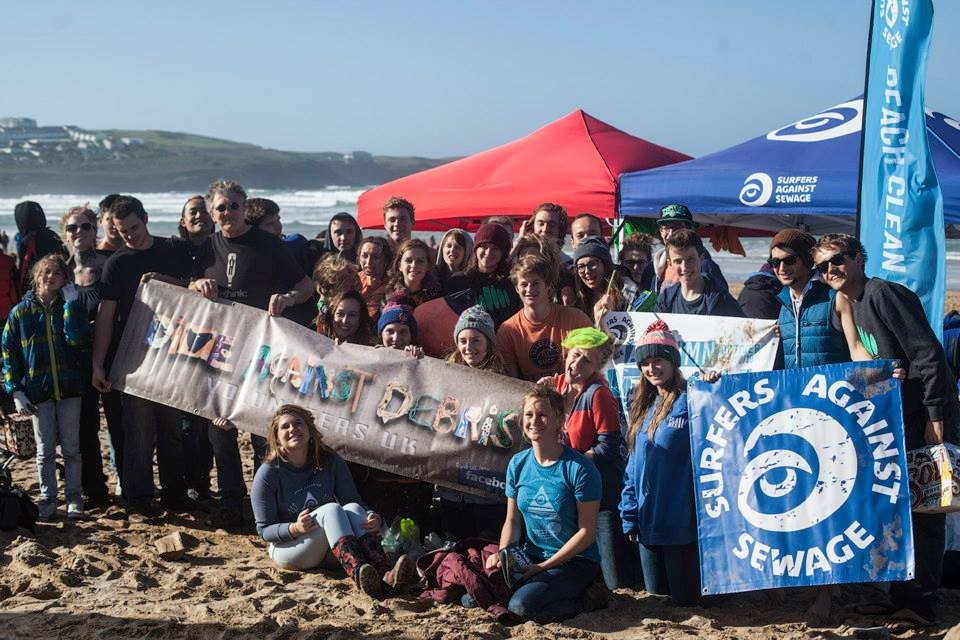Volunteers Join Forces to Cleanup Lansallos Beach Above and Below Water

Last summer, a team of volunteer scuba divers descended upon the picturesque National Trust owned Lansallos Beach, near Looe in Cornwall UK for a challenging conservation event: a "Dive Against Debris" or in other words an underwater cleanup survey.
Lansallos Beach has a very pretty reef and lots of wildlife. On the right-hand side though, due to currents and tide, it is full of plastic debris. Debris of this nature has a devastating effect on the ocean's wildlife, causing thousands of deaths every year.
Over 1600 pieces of debris were removed from the sea and catalogued. Including 889 fragments of plastic and 498 pieces of cloth. It was a real eye-opener for all involved and gathered a lot of interest and bemused looks from the public.
The plan was simple; to have a couple of dives and collect this underwater debris. The challenge was logistics and involved two conservation bodies, divers and shore volunteers. The main issue was access, with a 3/4 mile hike across countryside, unfeasible with heavy dive equipment. However, the National Trust provided access through the fields and, using their Landrover and trailer, transported the equipment to site.
The event was run as part of Project AWARE’s Dive Against Debris program. Similar projects are taking place in all corners of the world all year round and the marine debris data collected on the day contributes to showing the extent of the growing problem of marine litter in the UK and globally. This data was gathered by non-diving volunteers, weighing and cataloguing on the shore. They were so keen, they also had an above-water beach clean.
The Wildlife Trust's Cat Wilding, Coordinator of Cornwall's Sea Search group, also brought a team of divers. Cat's team recorded wildlife found; such data is often used to create Marine Conservation Zones. An interesting observation made was that entangled in the debris were many Pink Sea Fans. The theory suggested was that as they became entangled in fishing line, they became more susceptible to the strength of currents and became uprooted.
A local productions company recorded the day's proceedings, and have produced this short film
This free event run purely by like-minded volunteers who wanted to make a difference was followed by a BBQ, camp fire and camping on an idyllic National Trust camp site. It was a unique opportunity for people and organisations (National Trust, Seasearch, Surfers Against Sewage and Project AWARE), from different backgrounds, to work together and become enthused about helping overcome a global problem, on a local level.
We were very lucky on the day; the weather was perfect; the unique opportunity to dive a new and uncharted site enthused the divers and exceeded expectations. In fact, such a great time was had by all that we came away and set up a Facebook group:Dive Against Debris Volunteers UK. Through this, we can do more in the future and help raise awareness. We are now a group, run by volunteers to help with the global problem of marine debris and are not affiliated with any one dive club or organisation.
Divers are in a unique position to make a real difference to the global problem of underwater debris. Although you do not have to be a diver to help; shore volunteers are equally as important. The key factor is a willingness to help with the major debris problem in our seas which has such a devastating effect on wildlife.
If anyone would like to know more or help, please see or join our new Dive Against Debris Volunteers UK group on Facebook



